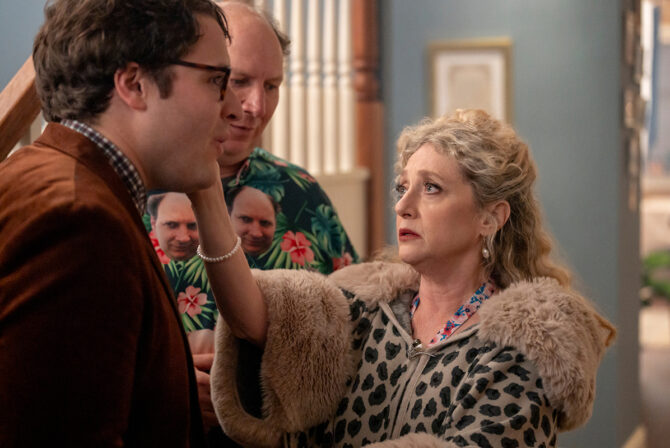At work today, I thought about two things: 1. Why aren’t there free tampons? and 2. Why was I hiding my tampon up my sleeve as if this aspect of personal hygiene should somehow be shameful?
Let’s add a third little tidbit/thought/question: Why am I even thinking about all of this, and feeling outraged – maybe even furious — that workplaces aren’t required to provide tampons?
I’ll tell you why. Every night this week, I’ve been listening to Claire Danes narrate a book. That book is called “The Handmaid’s Tale,” and Margaret Atwood started writing it in 1984 while living in West Berlin. Oh the irony.
I read this book as a teenager and found it entertaining, memorable. But now I’m reading it as a mom, a woman, an American woman, a gay woman, an adult, and I find myself experiencing something a book has never made me experience before: discomfort so intense that it’s physical.
“The Handmaid’s Tale” takes place in a post-democratic society. The environment is ruined, toxic waste is rampant, and the population has dwindled. Men rule an evangelical Christian theocracy (once the USA) called “Gilead,” where women have no rights (think the Duggars). They have freedoms, but only freedom “from” and not freedom “to;” this translates to us as, they have no choices.
The teller of the story is a Handmaid, a woman whose only purpose is to breed (think Lebensborn), and her only value is the lower half of her body—a “two legged womb,” she self describes. The handmaid bears no name, but is called Offred… Of Fred. Her shopping companion is Ofglen. So, I’d be “Ofstephen,” get it?
I don’t want to spoil the plot if you plan on reading or catching the new Hulu series next month, but I do want to warn you that this book is very possibly going to ruin your week; maybe even your month.
Prepare to wake up each morning with a pit in your stomach; something’s wrong, but you can’t put your finger on it. Prepare to toss and turn at night because something feels super off-kilter (think the pea underneath the princess’ mattress). And prepare to find your mind wandering while you’re at work because all you can think about is that scene from the book when women were suddenly prohibited from working, and the ensuing thought described by the handmaid, “What was it about this that made us feel we deserved it?”
You know, when this book’s popularity resurged this year thanks to the Trump administration (there are even Handmaid-style protest happening in Texas), I understood why, of course. I even read Margaret Atwood’s piece in the New York Times, and was glad she called out the similarities between today’s climate and that of the fictional Handmaid’s. But all this thinking about the story, and its eerie parallels to the here and now, didn’t prepare me for how revisiting this book was going to make me feel.
In a good moment, when I’m feeling optimistic, I like to think that because the book is out there, and because there’s so much buzz about the upcoming Hulu series, that people will be hyper aware; that they’ll have the same reading-reaction I did, and that their inner feminist spirit will be reawakened (if it hasn’t been already by the attacks on Planned Parenthood and maternity care). I like to think this: I really, really do.
Optimism is comforting, and in a good moment, I conclude that we’ll never end up like that, living in some dystopian hellhole. No, it couldn’t happen because we’re too advanced, too evolved. The affirmation and solidarity we obtain by just logging into Facebook is enough to let us know that we’re not alone. Communication and connectivity are such that we can’t be isolated by fear, right? Right?
But you don’t know if I’m right, and I don’t know either. I don’t know because of how this book describes the way things got worse, and worse; and people endured until their world no longer looked the same. I don’t know because of a line that gnaws and haunts me like a lurking stranger: “Nothing changes instantaneously: in a gradually heating bathtub you’d be boiled to death before you knew it.” Or as Atwood herself recently wrote, “Anything could happen anywhere, given the circumstances.”
Please tell me that’s not us.







